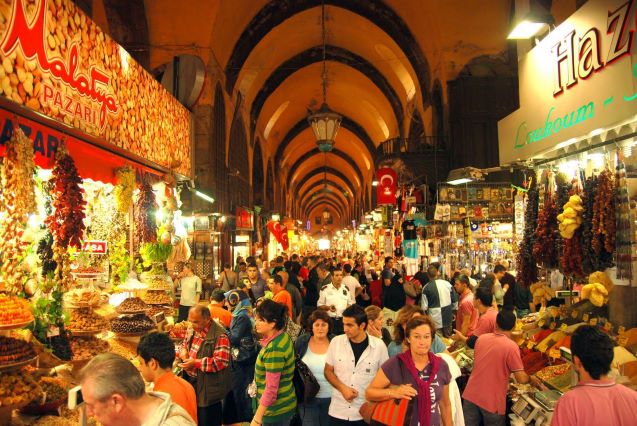Türkiye’s metropolitan city of Istanbul has ranked last in Economist Intelligence Unit’s (EIU) “Global Liveability Index 2022” report among European cities, worrying experts about the future of the city.
In the list, which takes into account criteria such as health services, crime rates, livelihoods, infrastructure, green space and traffic density, Istanbul took the last place among 38 European countries.
Transportation and traffic come first among the problems of Istanbul, where there are over 3,000 people per square kilometer.
There are more than 4.2 million vehicles registered in the city, while 2 million vehicles take to the roads each day.
Saying that Istanbul, where civil servants, retirees and low-income groups are seeking to leave, is heading towards collapse at full speed, experts warned that life in the megacity would become unsustainable unless the current population load is not reduced.
Stating that there is an agglomeration in Istanbul that is not seen in the metropolises of developed countries, urban planner Erhan Demirdizen describes Istanbul as “the city without an end” and “the city straining at the leash.”
“The story of population growth and unplanned construction dates back 50 years,” he said. “As long as attraction centers are not created in different provinces and regions, we will continue to experience chaos in disasters and suffer in traffic.”
Demirdizen noted there has been a 50 percent increase in the city’s population in the last 10 years, while 15 percent of it is due to internal migration. He added that the rest is made up of smugglers and immigrants.
“There is no other European city with such a growing population.”
Uncontrolled population growth and construction are the result of policies that encourage migration to metropolitan cities from rural areas, said Esin Köymen, the Chamber of Architects’ Istanbul head.
“If the city’s population continues to increase, we will soon be unable to breathe and find water as Istanbul is a megapolis that exploits the surrounding cities.”
In order not to face chaos in a possible earthquake, projects to reduce the population should be implemented, the expert warned.
Noting that the city is unable to meet water needs due to the increasing population, Dursun Yıldız, the head of the Water Policies Association, said, “Because the water collection basins in Istanbul were zoned for construction, the rain cannot mix with the soil.”
“If the population increase continues, there may be a serious water crisis in Istanbul within 10 years,” he said.
Stressing that 35 percent of the wastewater is discharged into the Marmara Sea and streams, disaster management expert Kubilay Kaptan said, “Within a few years, we may see heaps of garbage and filth similar to those in New Delhi.”
“Istanbul is a city open to all kinds of risks and disasters as the situation in Istanbul has become irreversible,” Kaptan added.
For the third time in the past five years, Vienna has captured the top spot in the list, while the top ten rankings were dominated by western European cities.
Copenhagen follows Vienna in second place, with Zurich taking third place with Calgary in Canada.
Not far behind is Geneva in number six, followed by Frankfurt at seven. Amsterdam secured number nine.__Daily Hurriyet





